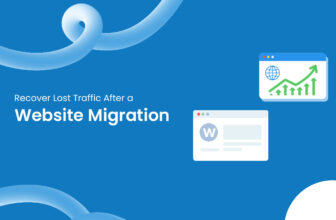
The foreign exchange market, commonly known as forex or FX, is the largest and most liquid financial market in the world, with daily trading volumes exceeding $6 trillion. The sheer size and accessibility of this market attract millions of traders globally, ranging from individuals to institutions. To participate in this market, traders must first open a forex account with a broker.
In this article, we’ll cover everything you need to know about forex accounts, including how to choose the right broker, different types of forex accounts, how to open an account, and the factors to consider when trading in the forex market.
What is a Forex Account?
A forex account is essentially a trading account that allows you to buy and sell foreign currencies. When you trade forex, you’re speculating on the price movements of currency pairs, such as EUR/USD (the euro against the U.S. dollar). With a forex account, you deposit funds, place trades, and manage your positions through a trading platform, typically provided by your broker.
Why Do You Need a Forex Account?
Just as you need a bank account to handle your financial transactions, you need a forex account to access the forex market. Here’s why opening a forex account is essential:
- Access to Global Markets: A forex account provides access to international currency markets, allowing you to trade currency pairs, commodities, and other financial instruments.
- Leverage: Forex accounts often offer leverage, enabling you to control larger positions with a smaller initial investment.
- Security: A forex account is a secure way to store and manage your funds, as brokers usually offer protection measures such as segregated accounts and negative balance protection.
Types of Forex Accounts
Forex brokers offer different types of accounts based on the trader’s level of experience, the capital they have, and their trading goals. Here are the common types of forex accounts:
1. Demo Accounts
A demo account is a practice account that allows traders to experience real-time market conditions without risking actual money. It is a risk-free way for beginners to familiarize themselves with trading platforms, tools, and strategies.
- Who Should Use It?
Demo accounts are ideal for new traders who want to practice without risk. They’re also useful for experienced traders testing new strategies. - Features:
- Virtual funds (no real money involved)
- Real-time market conditions
- Access to the full functionality of the trading platform
2. Standard Accounts
A standard forex account is the most common type of account, offering full access to the forex market. It allows traders to execute trades in standard lot sizes (100,000 units of the base currency).
- Who Should Use It?
Standard accounts are suitable for experienced traders who have enough capital to trade larger positions. - Features:
- Full access to forex pairs and other financial instruments
- Standard lot size of 100,000 units
- Variable leverage (depending on the broker)
3. Mini/Micro Accounts
Mini and micro accounts are designed for traders who want to trade with smaller amounts of capital. A mini account typically allows traders to trade in lot sizes of 10,000 units, while a micro account trades in 1,000 units.
- Who Should Use It?
These accounts are ideal for beginners who want to start trading with smaller amounts of capital and for those who prefer lower risk. - Features:
- Smaller lot sizes (10,000 or 1,000 units)
- Lower capital requirements
- Suitable for retail traders with a limited budget
4. ECN Accounts
An ECN (Electronic Communication Network) account provides direct access to the interbank market, where banks, financial institutions, and other large market participants trade currencies. ECN accounts usually have tighter spreads and offer transparency in trade execution.
- Who Should Use It?
ECN accounts are ideal for professional traders and those who prefer higher liquidity, faster execution, and lower spreads. - Features:
- Direct market access
- Tight spreads with commission-based trading
- Transparent pricing
- Suitable for high-volume traders
5. Islamic Accounts
An Islamic forex account is a swap-free account designed for traders who follow Islamic principles, specifically those that prohibit earning or paying interest (riba). Islamic accounts do not charge swap fees for holding positions overnight.
- Who Should Use It?
Islamic accounts are suitable for traders following Sharia law or anyone who prefers a swap-free trading environment. - Features:
- No overnight swap fees
- Suitable for long-term trading strategies
- Available across multiple account types (standard, mini, ECN, etc.)
How to Open a Forex Account
Opening a forex account is a straightforward process. Here are the steps involved:
1. Choose a Reputable Broker
Before opening an account, you must first choose a reliable forex broker. This decision is critical because the broker acts as your gateway to the forex market. Here are some factors to consider:
- Regulation: Ensure the broker is regulated by a reputable financial authority, such as the Financial Conduct Authority (FCA) in the UK, the Commodity Futures Trading Commission (CFTC) in the US, or the Australian Securities and Investments Commission (ASIC).
- Spreads and Commissions: Check whether the broker offers competitive spreads and reasonable commissions, especially if you’re trading frequently.
- Leverage: Depending on your trading strategy, you may want to choose a broker that offers leverage options suitable for your risk tolerance.
- Trading Platform: Brokers typically offer popular trading platforms such as MetaTrader 4 (MT4), MetaTrader 5 (MT5), or cTrader. Make sure the platform meets your trading needs.
- Deposit/Withdrawal Methods: Look for brokers that provide convenient and secure deposit and withdrawal options, including bank transfers, credit/debit cards, and e-wallets like PayPal, Skrill, or Neteller.
2. Fill Out the Application Form
Once you’ve chosen a broker, the next step is to fill out an application form. This usually involves providing basic personal information, such as:
- Full name
- Contact details (email and phone number)
- Date of birth
- Residential address
- Nationality
- Employment information
3. Complete the KYC (Know Your Customer) Process
To comply with anti-money laundering (AML) regulations, brokers must verify your identity through a KYC process. You will need to submit the following documents:
- Proof of Identity: A valid passport, driver’s license, or government-issued ID.
- Proof of Address: A recent utility bill, bank statement, or official document that confirms your residential address.
4. Fund Your Account
Once your account is approved, you’ll need to deposit funds to start trading. Brokers usually offer various funding methods, including bank transfers, credit/debit cards, and online payment systems. Consider the following factors when funding your account:
- Minimum Deposit: Check the minimum deposit requirement for the type of account you’ve opened. Some brokers may require as little as $10, while others may have higher requirements.
- Deposit Fees: Verify whether the broker charges fees for depositing or withdrawing funds.
- Currency: Make sure the broker supports deposits in your preferred currency, or be aware of any conversion fees.
5. Start Trading
After funding your account, you’re ready to begin trading. Log in to your trading platform, analyze the markets, and place your trades. As a beginner, it’s advisable to start small, familiarize yourself with the platform, and gradually increase your position sizes as you gain confidence.
Key Considerations When Opening a Forex Account
Opening a forex account requires careful planning and consideration. Here are some important factors to keep in mind:
1. Risk Management
Forex trading involves significant risk, especially when using leverage. It’s essential to have a risk management strategy in place before you start trading. This may include setting stop-loss orders, calculating position sizes carefully, and using only risk capital.
2. Trading Costs
Different brokers have varying fee structures. These costs include spreads (the difference between the bid and ask price), commissions, and swap rates (fees for holding positions overnight). Understanding these costs is crucial because they can eat into your profits.
3. Leverage
Leverage allows you to control larger positions with a smaller initial investment, but it also increases risk. Ensure you fully understand how leverage works and only use it within your risk tolerance. Many regulators have placed limits on leverage for retail traders, so be sure to comply with local regulations.
4. Platform Features
Ensure that the trading platform your broker offers has the features you need for your trading strategy. This includes access to real-time market data, customizable charts, technical indicators, and risk management tools.







